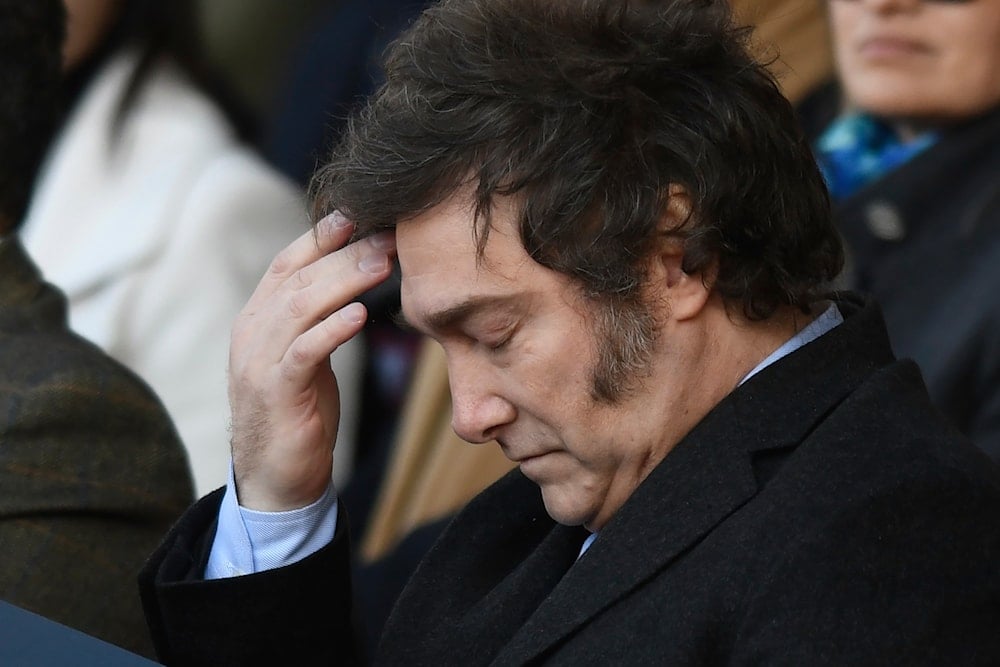Milei eyes close economic ties with China while cozying up to US: WSJ
Argentina's President is finding it difficult to decouple from China despite his strong will to insult its leaders and call them "assassins" amid a hard financial time in Argentina.
-

Argentine President Javier Milei attends the opening ceremony for the Rural Society's annual exposition in Buenos Aires, Argentina, Sunday, July 28, 2024. (AP)
When China unexpectedly extended a multibillion-dollar share of a currency exchange in June, many were relieved that Argentina wouldn't have to use its dwindling reserves to repay the funds, The Wall Street Journal reported.
Argentine President Javier Milei, who frequently mocked China throughout his campaign and referred to its leaders as "assassins", expressed gratitude to Beijing and claimed that the prolongation brought about financial relief. According to his administration, Argentina's growth and prosperity depend on its mutual respect with China.
While maintaining tight ties with the United States, Milei has adopted a more practical stance toward Beijing, admitting that Chinese commerce and investments are crucial to Argentina's future. China and Argentina now have closer relations in many important areas of the economy, from the huge open plains of the farm belt to the mining industry in the dry north, which produces lithium.
Milei already received a call back in December from Tesla's CEO Elon Musk, indicating that the tech tycoon and the US government are interested in the country's lithium reserves.
Benjamin Gedan, director of the Woodrow Wilson Center’s Latin America program in Washington, explained, “He’s incredibly undisciplined in foreign policy, but he’s been on his best behavior with China since taking office,” adding, “What we’re seeing in that calculation is Milei the economist understanding the importance of China.”
Read next: Argentina's annual inflation soars above 250% in January
After Brazil, Argentina's neighbor, China is its second-largest trading partner, with $20 billion in sales last year compared to $14 billion with the United States. Over the past 20 years, Argentina's exports to China have expanded eightfold as a result of Chinese investments in mining, oil and gas, banking, and construction. According to Sergi Lanau, an economist and Argentine specialist at Oxford Economics, China's foreign direct investment holdings have increased by 500% during 2015 to over $3 billion.
Back at the end of December, China reportedly halted a $6.5 billion currency swap deal with Argentina, and the suspension was due to persist until Milei demonstrates a clear commitment to engaging with Beijing, as per Argentine media reports.
The move came only 10 days into the tenure of the President, who campaigned on severing connections with China. This emphasizes the challenge that Milei would encounter in attempting to fulfill those campaign promises.
In Beijing, Chinese Foreign Ministry spokesperson Wang Wenbin declined to either confirm or deny the reports. He stated that China remains dedicated "to cooperation with Argentina on the basis of equality and mutual benefit."
This funding is part of an agreement renewed on an annual basis since 2009, proving crucial for Buenos Aires given its limited holdings of dollar reserves. Argentina has leaned on such swaps as one of its limited credit options, particularly in light of the nation's historical tendency to default on international debt.

 3 Min Read
3 Min Read








